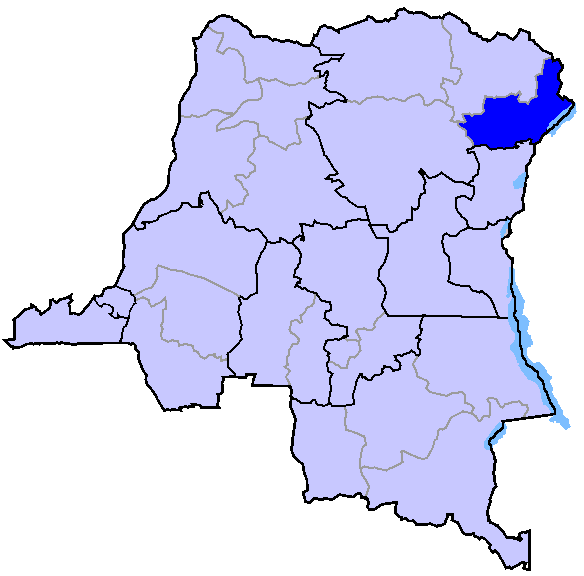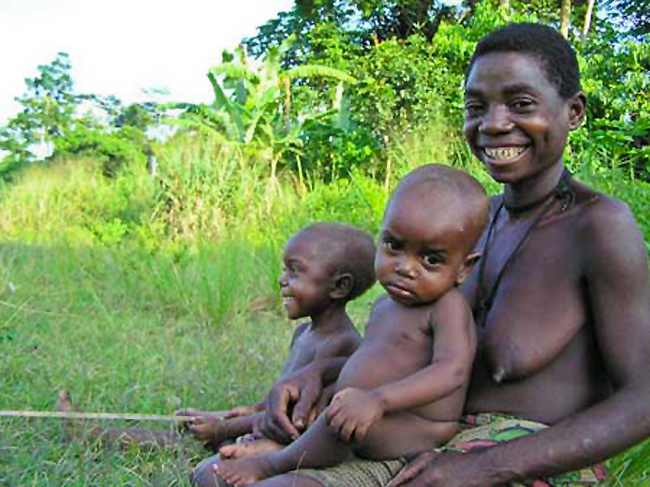|
Kango People
The Kango (''Bakango''), also known as the Batchua and Mbuti-Sua, are an Mbuti pygmy people of the Ituri forest. They speak a Bantu language, Bila, apparently in two dialects, northern Sua and southern Kango. They are in a patron–vassal relationship with several Bantu-speaking peoples, the Bila, Budu, Ndaka, Bombo Bombo may refer to: Music * ''Bombo'' (musical), a 1921 Broadway production starring Al Jolson * "Bombo" (song), by Norwegian singer Adelén *Bombo criollo or just bombo, a family of Latin American drums *Bombo legüero, an Argentine drum *An 18th ..., Liko, and Baali; two Sudanic peoples, the Lese and Luumbi, and the Ubangian Mayogo. They may be the Wochua people described in the 19th century. References *Serge BAHUCHET, 2006. "Languages of the African Rainforest « Pygmy » Hunter-Gatherers: Language Shifts without Cultural AdmixtureIn ''Historical linguistics and hunter-gatherers populations in global perspective''. Leipzig. African Pygmies Ethnic ... [...More Info...] [...Related Items...] OR: [Wikipedia] [Google] [Baidu] |
Mbuti
The Mbuti people, or Bambuti, are one of several indigenous pygmy groups in the Congo region of Africa. Their languages are Central Sudanic languages and Bantu languages. Subgroups Bambuti are pygmy hunter-gatherers, and are one of the oldest indigenous people of the Congo region of Africa. The Bambuti are composed of bands which are relatively small in size, ranging from 15 to 60 people. The Bambuti population totals about 30,000 to 40,000 people. Many Batwa in various parts of the DRC call themselves Bambuti as well. There are three distinct subgroups: * The Sua (also Kango, or Mbuti), who speak a dialect (or perhaps two) of the language of a neighboring Bantu people, Bila. They are located centrally and are eponymous of the larger group. * The Efé, who speak the language of the neighboring Central Sudanic Lese. * The Asua, speakers of the Mangbetu (Central Sudanic) Asua language. Environment The Mbuti population live in the Ituri, a tropical rainforest covering a ... [...More Info...] [...Related Items...] OR: [Wikipedia] [Google] [Baidu] |
Pygmy
In anthropology, pygmy peoples are ethnic groups whose average height is unusually short. The term pygmyism is used to describe the phenotype of endemic short stature (as opposed to disproportionate dwarfism occurring in isolated cases in a population) for populations in which adult men are on average less than tall. The term is primarily associated with the African Pygmies, the hunter-gatherers of the Congo Basin (comprising the Bambenga, Bambuti and Batwa). The terms "Asiatic Pygmies" and "Oceanian pygmies" have been used to describe the Negrito populations of Southeast Asia and Australo-Melanesian peoples of short stature. The Taron people of Myanmar are an exceptional case of a "pygmy" population of East Asian phenotype. Etymology The term ''pygmy'', as used to refer to diminutive people, derives from Greek πυγμαῖος ''pygmaios'' via Latin ''Pygmaei'' (sing. ''Pygmaeus''), derived from πυγμή – meaning a short forearm cubit, or a measure of length corres ... [...More Info...] [...Related Items...] OR: [Wikipedia] [Google] [Baidu] |
Ituri Forest
The Ituri Rainforest is a rainforest located in the Ituri Province of northeastern Democratic Republic of the Congo. The forest's name derives from the nearby Ituri River which flows through the rainforest, connecting firstly to the Aruwimi River and finally into the Congo. Geography The Ituri Rainforest is about in area, and is located between 0° and 3°N and 27° and 30° E. Elevation in the Ituri ranges from about . The climate is warm and humid, as exemplified by the nearby city of Bunia, which however is at a slightly higher elevation. About one-fifth of the rainforest is made up of the Okapi Wildlife Reserve, a World Heritage Site. It is also the home of the Mbuti pygmies, one of the hunter-gatherer peoples living in equatorial rainforests characterised by their short height (below , on average). They have been the subject of research by a variety of outsiders, including Patrick and Anne Eisner Putnam, who lived on the banks of the at the edge of the Ituri. They were a ... [...More Info...] [...Related Items...] OR: [Wikipedia] [Google] [Baidu] |
Bantu Languages
The Bantu languages (English: , Proto-Bantu: *bantʊ̀) are a large family of languages spoken by the Bantu people of Central, Southern, Eastern africa and Southeast Africa. They form the largest branch of the Southern Bantoid languages. The total number of Bantu languages ranges in the hundreds, depending on the definition of "language" versus "dialect", and is estimated at between 440 and 680 distinct languages."Guthrie (1967-71) names some 440 Bantu 'varieties', Grimes (2000) has 501 (minus a few 'extinct' or 'almost extinct'), Bastin ''et al.'' (1999) have 542, Maho (this volume) has some 660, and Mann ''et al.'' (1987) have ''c.'' 680." Derek Nurse, 2006, "Bantu Languages", in the ''Encyclopedia of Language and Linguistics'', p. 2:Ethnologue report for Southern Bantoid" lists a total of 535 languages. The count includes 13 Mbam languages, which are not always included under "Narrow Bantu". For Bantuic, Linguasphere has 260 outer languages (which are equivalent to languages ... [...More Info...] [...Related Items...] OR: [Wikipedia] [Google] [Baidu] |
Bila Language
Bila, or Forest Bira, is a Bantu language spoken in the Mambasa Territory of the Democratic Republic of Congo. It is also spoken by the Mbuti Pygmies who live in that area. Pygmy groups to the west include the Kango and Sua (Batchua).''L'Apare est un ruisseau, affluent de l'Ituri en région des Bantous Babali. La route qui relie Bafwasende à Bomili traverse le village, où réside ce groupe de Pygmées devenus sédentaires. Dans la documentation de l'expédition de 1929 et de 1935, ils étaient désignés sous le nom de Basua ageBabali aux Bango ''wa mugwase'' (ou Pygmées de forêt). Après l'expédition de 1949–50, l'auteur préfère substituer à ces deux appellations, données par les Babali, leurs propres noms : les Pygmées de forêt désignent ceux de village du nom de Balioli (=Belueli) (sing. Dioy) et vice-versa ceux-ci désignent les Pygmées de forêt du nom de Bango (sing. Mwango).'' Other Mbuti speak Central Sudanic languages. The Kango and Sua speak distinct di ... [...More Info...] [...Related Items...] OR: [Wikipedia] [Google] [Baidu] |
Bila People
Bila or Bílá may refer to: Places *Bila, Ethiopia, formerly known as Billo and Billa, or its eponymous Bila Seyo region *Bila, a village in Schitu Commune, Romania *Bila (Livno), a village in Bosnia and Herzegovina * Bila, Vitez, a village in Bosnia and Herzegovina * Bila, Cameroon, a village in Cameroon *Bila River (other) *Slovenian name for Resiutta, a municipality in Italy *Bílá (Frýdek-Místek District), a municipality and village in the Czech Republic *Bílá (Liberec District), a municipality and village in the Czech Republic Surname *Bílá, the feminine form of the Czech surname Bílý *Jedediah Bila, American TV host, author and columnist *Abdoul Bila, Burkinabé footballer *Vonani Bila, South African author and poet Other *Bila (sun), the solar deity of the Adnyamathanha people *Bila language Bila, or Forest Bira, is a Bantu language spoken in the Mambasa Territory of the Democratic Republic of Congo. It is also spoken by the Mbuti Pygmies who live i ... [...More Info...] [...Related Items...] OR: [Wikipedia] [Google] [Baidu] |
Budu People , a village in Romania
{{disambiguation ...
Budu may refer to: Languages * Budu language, a language of the Democratic Republic of the Congo * Budu Dogon, a language of Mali * Budu language (China), a language of China Other uses * Budu people, an ethnic group of the Democratic Republic of the Congo * Budu (sauce), a fish sauce * Budu Cantemir Budu may refer to: Languages * Budu language, a language of the Democratic Republic of the Congo * Budu Dogon, a language of Mali * Budu language (China), a language of China Other uses * Budu people Budu may refer to: Languages * Budu languag ... [...More Info...] [...Related Items...] OR: [Wikipedia] [Google] [Baidu] |
Ndaka People
The Ndaka people (of Ndaaka) are an ethnic group of the northeastern Democratic Republic of the Congo, many of whom live in the Mambasa Territory of the Ituri Province Ituri is one of the 21 new provinces of the Democratic Republic of the Congo created in the 2015 repartitioning. Ituri, Bas-Uele, Haut-Uele, and Tshopo provinces are the result of the dismemberment of the former Orientale province. Ituri was .... All young Ndaka men had to be initiated to become full adult members of the tribe. The ceremonies are held every six years or so, and involve traditional songs and dances. In some of these special instruments are used, and masked ritualists act out prescribed roles dressed in full costume. References {{authority control Ethnic groups in the Democratic Republic of the Congo ... [...More Info...] [...Related Items...] OR: [Wikipedia] [Google] [Baidu] |
Bombo People
Bombo may refer to: Music * ''Bombo'' (musical), a 1921 Broadway production starring Al Jolson * "Bombo" (song), by Norwegian singer Adelén *Bombo criollo or just bombo, a family of Latin American drums *Bombo legüero, an Argentine drum *An 18th-century term for tremolo *An album from Swedish rock band Bonafide Places *Bombo, New South Wales, a suburb of the Municipality of Kiama, Australia *Bombo, Uganda, a town in Luwero District *A ward in Same District, Tanzania People *Aama Bombo, shaman in the Nepalese Tamang tradition *Bombo Calandula (born 1983), Angolan former team handball player *Bombo Rivera (born 1952), Puerto Rican former Major League Baseball player nicknamed "Bombo" Other uses *Bombo Radyo Philippines, a large Filipino radio network *, an Australian coastal freighter that foundered in 1949 * ''Bombo'' (video game), a 1986 British game on the Commodore 64 *Bombo, the ball used in chaza, a Colombian racquet sport See also * Bomba (other) * Bombe (disamb ... [...More Info...] [...Related Items...] OR: [Wikipedia] [Google] [Baidu] |
Liko People
Liko AB, based in Luleå is owned by Hill-Rom, a US-based corporation located in Batesville, IN. The company develops, manufactures and markets mainly mobile and stationary (overhead) patient lift A patient lift (patient hoist, jack hoist, hydraulic lift) may be either a sling lift or a sit-to-stand lift. This is an assistive device that allows patients in hospitals and nursing homes and people receiving home health care to be transferred ...s, slings and other lifting accessories. Most of Liko's products are sold outside of Sweden. The largest markets are North America, Western Europe and the Asia-Pacific region. Liko has about a 15-20% share of the world market for patient lifts and is thereby one of the most important suppliers in its segment. Liko was established in 1979. References External links Official website Medical technology companies of Sweden {{sweden-stub ... [...More Info...] [...Related Items...] OR: [Wikipedia] [Google] [Baidu] |
Baali People
Baali may refer to: * Baali language, a Bantu language of the Democratic Republic of the Congo * Baali people, a group in the Democratic Republic of the Congo, in a patron-vassal relationship with the Kango people The Kango (''Bakango''), also known as the Batchua and Mbuti-Sua, are an Mbuti pygmy people of the Ituri forest. They speak a Bantu language, Bila, apparently in two dialects, northern Sua and southern Kango. They are in a patron–vassal relation ... See also * Baal (other) * Bali (other) {{Disambiguation ... [...More Info...] [...Related Items...] OR: [Wikipedia] [Google] [Baidu] |
Lese People
{{dab ...
Lese may refer to: People * Grigore Leșe (born 1954), Romanian musician Places * Leše, Litija, Slovenia * Leše, Prevalje, Slovenia * Leše, Tržič, Slovenia * Lese River, Democratic Republic of the Congo Other * Lese language See also * Lèse-majesté Lèse-majesté () or lese-majesty () is an offence against the dignity of a ruling head of state (traditionally a monarch but now more often a president) or the state itself. The English name for this crime is a borrowing from the French, w ... [...More Info...] [...Related Items...] OR: [Wikipedia] [Google] [Baidu] |


